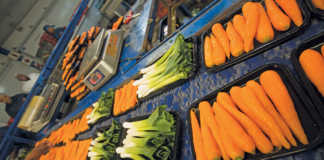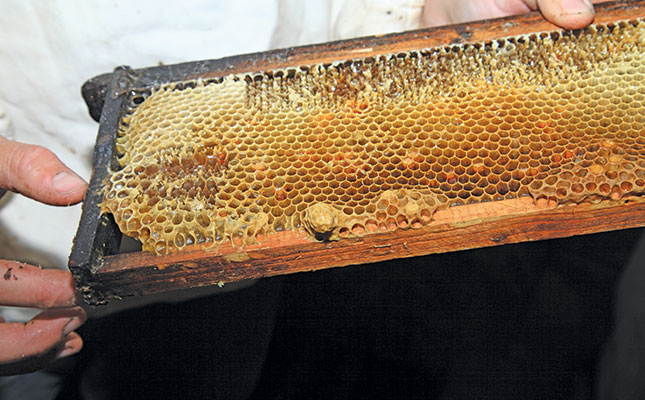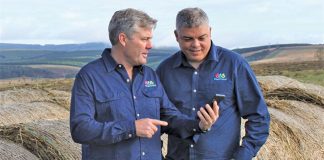
South Africa’s agriculture and food sector value chain, which was declared an essential service during the national lockdown, remains in operation.
But the far-reaching impact of the coronavirus has brought challenges to farmers, as certain subsectors are suffering from trading restrictions, commodity prices are volatile, and imports and exports have been constrained.
While the value of South Africa’s exportable agricultural commodities declined by 8,8% to US$9,8 billion (R164 billion) in 2019, the picture is expected to improve somewhat in 2020, according to Nico Groenewald, head of agribusiness at Standard Bank.
“The favourable rains and weather conditions have helped farmers increase summer crop plantings, and this has improved prospects for higher outputs,” he explains.
Conditions in the livestock industry have improved too. Last year saw two outbreaks of foot-and-mouth disease (FMD), in January and November, with resultant bans on meat exports. Quarantine restrictions were lifted for certain areas in Limpopo only in August 2020.
South Africa has still not regained its FMD-free status, however, and the country as a whole is still banned from exporting certain red meat products. However, the red meat industry has achieved special dispensation for specific FMD-free areas to resume exports on a compartmentalisation basis.
South Africa’s agriculture sector is heavily dependent on global markets, with most of the country’s exports going to Asia and Europe. These two markets accounted for 50% of South Africa’s agricultural exports in 2019, according to the Agricultural Business Chamber.
Unfortunately, these regions have been particularly hard hit by the virus. This has contributed to slowing demand due to diminished spending power by consumers and disrupted supply chains as governments restrict movement to limit the spread of the virus.
“A slowdown in export demand would hurt an already pressed sector,” says Groenewald. “The situation would then be exacerbated by a decline in the prices of exportable commodities. This could threaten the cash flow of farmers, both large and small.”
Certain industries in the sector, such as alcoholic beverages and floriculture, have suffered restrictions to their trade. This has reduced cash flow for producers in the short term.
“The financial impact of COVID-19 on farmers differs across subsectors of agriculture,” says Groenewald. “Some are battling to cope as a result of their debt overhang and stage of production. Others can generate enough revenue from exports to service their debt, but how well they do depends on the ability of trading partners to maintain commerce amid the pandemic.”
Some producers have had their cash flow disrupted. “They need to prepare soil and buy inputs for the next production season, yet they won’t necessarily receive all the income from the previous season.”
Much uncertainty still exists about the pandemic’s impact on supply and value chains, making it more important than ever to produce crops of the right quality and quantity.
“While many of these factors are out of the control of the sector value chain, continuous planning is essential to mitigate risks, minimise disruptions, and ensure that systems are running efficiently.”
All this is on top of the inherently unpredictable nature of agricultural production, which is highly sensitive to the challenges of weather and general growing conditions.
“As a leading provider of financial services to the agriculture sector for more than 150 years, no one understands these challenges better than we at Standard Bank do.”
An agricultural partner
Groenewald explains that Standard Bank’s agribusiness teams are not only bankers, but “agricultural experts of this dynamic sector”.
“Behind every client’s relationship manager, who works to gain an understanding of the business’s needs, is a team of agricultural advisors and economists. Their job is to prepare clients for tomorrow.”
This structure, he adds, enables Standard Bank to take a holistic approach to develop innovative, customised solutions to address a client’s requirements. The team proactively helps meet the needs of each client by facilitating access to a broad range of products and services such as cash-flow planning and profit management.
Because agriculture is characterised by strong cyclical trends, Standard Bank offers structured advances and loans, which take the effects of these cycles into account. Interest rates and fees are negotiated for the product/s required.
“These solutions enable us to help farmers manage their currency risk and continue to drive the growth of agriculture in South Africa and the continent,” Groenewald concludes.













